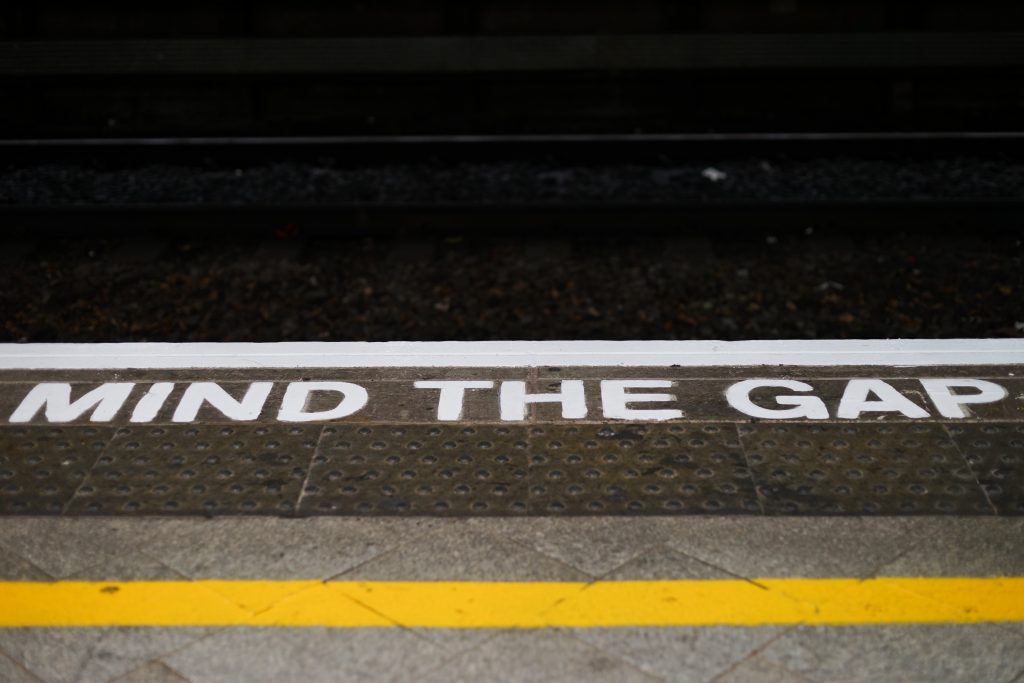Many of us believe that we should try to create a more equal society. But it’s not always clear what we mean when we say that we care about equality. Do we want people to have more equal shares of income and wealth? Or is it more important that we treat one another as equals, so that nobody is looked down on or seen as inferior? Politics researcher, Alice Baderin, describes her recent work on material inequality and how it affects people’s social relationships.

In political philosophy, the nature of equality has been much discussed in terms of a distinction between ‘distributive’ and ‘relational’ views. Distributive egalitarians object to inequality in the allocation of goods within a society. Relational egalitarians argue that this misses the fundamental point of equality: We should be less concerned about the material gaps between us, and more focussed on how we regard and treat one another.
On second glance, we might wonder how much this philosophical debate matters in the real world. In practice, aren’t these different aspects of equality closely connected? For example, we might expect that when material inequality increases, those with the least are also more likely to be stigmatised or socially excluded.
While questions about inequality are central to many academic disciplines, we still have surprisingly little robust data about the impact of material inequality on equality in our social relationships. I was awarded a grant from the University of Reading Research Endowment Trust Fund to investigate this issue, together with colleagues from the University of Oxford and University College London.
Previous studies have used cross-national data to look at how income inequality affects people’s status attitudes, but with mixed results. It has proved difficult to separate the impact of income inequality from other factors that vary across countries, including differences in overall levels of prosperity.
We decided instead to run an experiment to find the answer to our question. We split a representative sample of 3,750 UK adults into treatment and control groups, and we presented the treatment groups with information about the extent of income inequality in the UK. We then looked at how raising awareness of material inequality affects respondents’ sense of their own social standing, and their attitudes towards others. By using an experimental approach like this, we can compare the attitudes of participants who receive the information about income inequality to responses from the control group. We can thereby begin to get a better idea about the causal impact of material inequality on people’s status beliefs and perceptions.
We find that the people presented with information about income inequality report lower social standing than the control group. In the philosophers’ terms, ‘distributive inequality’ undermines ‘relational equality’. But the connections are also more complicated than we might expect. For example, low-income respondents are more likely to feel looked down on when we increase their awareness of material inequality. But giving people information about material inequality seems to lead to more exclusionary attitudes towards the rich, rather than the poor.
We are also investigating how the impact of income inequality is shaped by respondents’ prior beliefs about the causes of inequality, for example whether they think that those at the top have got there through luck or hard work. We plan to build on these findings in future research, for example by looking at whether similar patterns hold outside of the UK context.
Our research suggests that even if income and wealth gaps don’t matter in themselves, they do play an important role in shaping how we regard and relate to one another. For example, when people on low incomes are aware of the extent of material inequality in society, they are less likely to feel equal to others in status terms. This shows that even if you are a ‘relational egalitarian’ you should still care about distributive inequality.
Alice Baderin is a Lecturer in political theory who works on issues of justice and risk, equality and inequality and methods in political research. In 2019 she received funding from the University for an interdisciplinary project on ‘Equality: Distributive and Relational’ (joint work with Lucy Barnes, Political Science, UCL, and Lindsay Richards, Sociology, University of Oxford).
